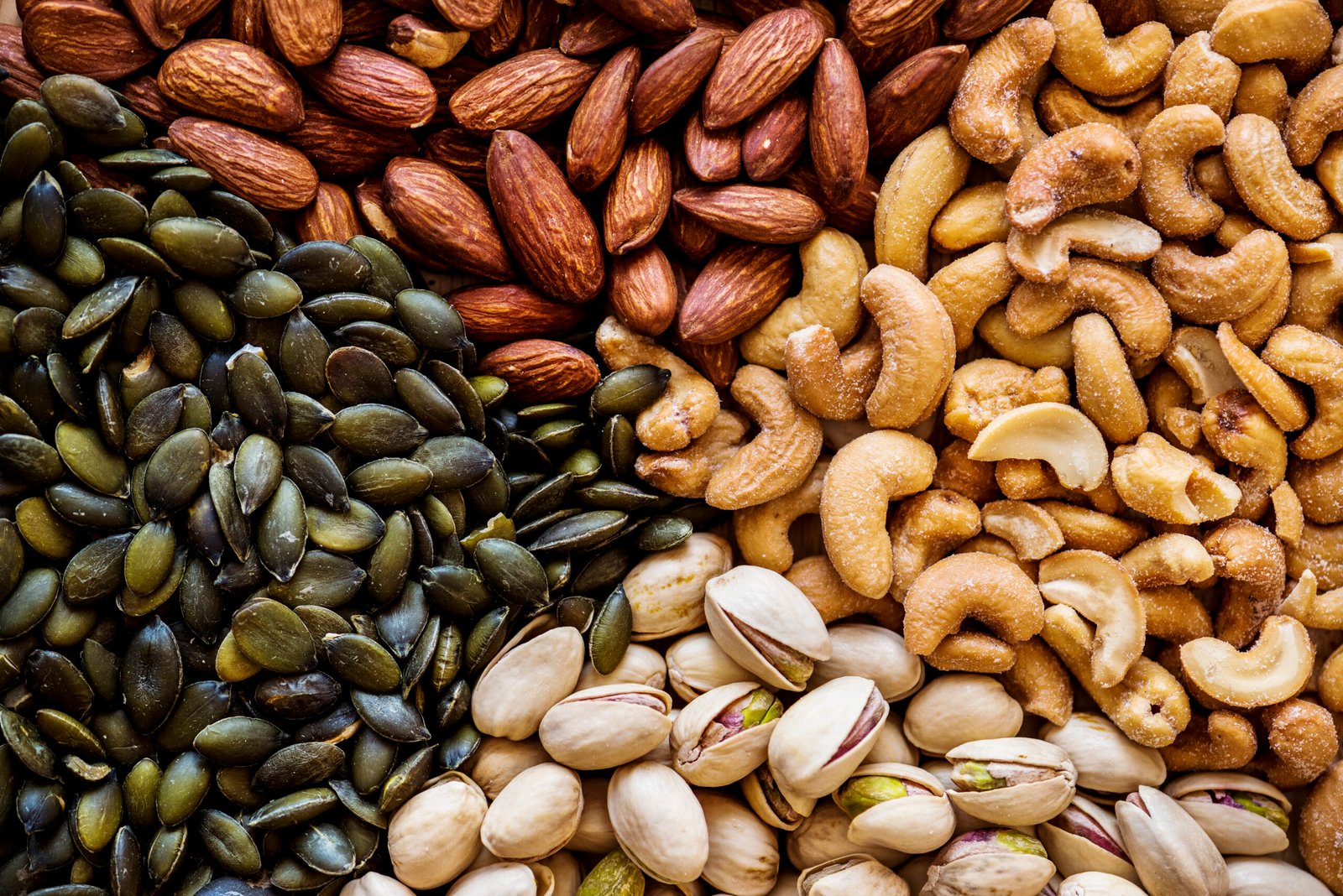As parents, we want the best for our kids, especially when it comes to what they eat. But here’s the thing: some foods that seem innocent or even healthy could actually be harmful to your toddler—whether it’s because they’re a choking hazard, contain too much sugar, or are just tough on little tummies. And trust me, I get it. I have a 3-year-old son named Tayber, and I’ve spent countless hours worrying about whether the food I’m giving him is really as safe as I think it is. If you’re like me, you want to make sure your toddler’s meals are not only delicious but also nutritious and safe.
So, are you feeding your toddler any of these 10 foods that could be more harmful than you realize? Let’s find out, and more importantly, let’s talk about what you can do to make sure your little one’s plate is full of healthy and safe options.
1. Whole Grapes and Cherries
Reason to avoid:
You probably love grapes and cherries—they’re sweet, easy to eat, and packed with vitamins. But for toddlers, they’re one of the biggest choking hazards. Their small, round shape can easily get lodged in a toddler’s throat.
Objection Handling:
“But my little one loves grapes! Is it really that dangerous?”
I get it. Tayber gobbles up grapes, too. But cutting them into smaller pieces—think quarters—makes a huge difference in reducing that risk. Don’t skip the cutting!
Solution:
Cut grapes and cherries into very small pieces (quarters or even smaller), and always remove the pits from cherries. It’s a simple fix, and you can still offer the tasty fruit without the worry.
2. Nuts and Whole Seeds
Reason to avoid:
Nuts and seeds are packed with healthy fats, but they’re also hard and small—making them a serious choking hazard for toddlers who aren’t yet great at chewing.
Objection Handling:
“Nuts are so healthy! I want my little one to get those good fats.”
Totally! I love how healthy nuts are, but we have to think about how they’re served. Whole nuts just aren’t safe at this stage.
Solution:
Instead of whole nuts, offer smooth nut butter like peanut butter or almond butter spread on toast or mixed into oatmeal. Just make sure it’s not too thick, and serve it in small amounts.
3. Popcorn
Reasons to avoid:
Popcorn is one of those snacks that seems like a fun, light option for toddlers, but it’s actually a choking hazard. The kernels, especially unpopped ones, can be dangerous.
Objection Handling:
“But we eat popcorn all the time at movie night—why can’t my little one?”
I hear you. I’m all for movie nights, too! But popcorn is just a little too tricky for a toddler’s developing chewing skills.
Solution:
Hold off on popcorn for now. You can still enjoy family movie nights, though—try rice cakes or small pieces of soft fruit as an alternative.
4. Hard Candy, Jelly Beans, and Gummies
Reasons to avoid:
These candies are often the first thing toddlers reach for, but they’re a nightmare when it comes to choking. They’re hard to chew and often sticky, making it tough for little ones to swallow safely.
Objection Handling:
“But they’re just sweets! Isn’t a little treat okay?”
Sweets are fine in moderation, but not these kinds of sweets. Stick with treats that are safer and still sweet without the risk.
Solution:
Offer soft fruit slices, yogurt-covered raisins, or even frozen fruit popsicles as a treat. You can still satisfy their sweet tooth without the danger.
5. Hot Dogs (Whole or in Large Pieces)
Reasons to avoid:
Hot dogs are soft and easy to eat for adults, but they’re a classic toddler choking hazard. Their shape and firmness make them dangerous, especially when served in large pieces.
Objection Handling:
“My little one loves hot dogs! I’m just cutting them into pieces—what’s the harm?”
While cutting them into smaller pieces helps, it’s still not enough for toddlers. The size, texture, and shape of a hot dog make it a high-risk food for toddlers.
Solution:
Instead of whole hot dogs, opt for small pieces of finely chopped cooked chicken or mini turkey meatballs. Both are just as delicious but safer for little ones.
6. Raw Vegetables (Carrots, Celery, etc.)
Reasons to avoid:
Raw carrots, celery, and other hard vegetables are tough for toddlers to chew and swallow, making them a choking hazard.
Objection Handling:
“But raw veggies are so healthy! I want to teach my little one to love veggies.”
I totally agree! But toddlers aren’t great at chewing raw veggies. The goal is to get those nutrients in without the choking risk.
Solution:
Instead of raw veggies, steam or roast them until they’re soft, and cut them into small, bite-sized pieces. You’ll still get the nutritional benefits without the worry.
7. Cheese (Large Pieces)
Reasons to avoid:
Cheese is an awesome source of calcium, but when served in large chunks, it can be too difficult for toddlers to chew and swallow properly.
Objection Handling:
“Cheese is an easy snack! What’s the big deal?”
I get it—cheese is a quick and easy snack. But large pieces can still pose a choking hazard, and we don’t want that.
Solution:
Serve cheese in small cubes, shredded, or as thin slices. String cheese is another good option as long as it’s cut into bite-sized pieces.
8. Unpeeled Fruits (Apples, Pears, etc.)
Reasons to avoid:
Fruits like apples and pears can be tough to chew when they’re unpeeled. And their skins can be a choking risk if they’re not properly cut.
Objection Handling:
“My little one loves apples with the skin on! Shouldn’t he eat the whole fruit?”
I know! But the skin is often tough for toddlers to chew. Peeling the fruit can prevent choking and help them enjoy the taste more.
Solution:
Peel apples, pears, and other fruits with tough skins, and cut them into small, manageable pieces for your toddler. You can also try steamed apples for a softer option.
9. Honey (Under Age 1)
Reasons to avoid:
Honey is delicious, but it can contain botulism spores, which can be harmful to babies and toddlers under the age of one.
Objection Handling:
“But honey is so natural! Can’t I give it to my little one?”
While honey is natural and healthy for older children, it’s a risk for little ones. It’s just not worth taking the chance.
Solution:
Hold off on honey until your toddler is over one year old. In the meantime, you can use mashed bananas or applesauce as a sweet alternative.
10. Unpasteurized Dairy Products
Reasons to avoid:
Unpasteurized dairy, like certain soft cheeses, can carry harmful bacteria such as Listeria, which can cause serious illness in toddlers.
Objection Handling:
“But I’ve heard some cheeses are good for kids. Are all cheeses dangerous?”
Not all cheeses are unsafe, but unpasteurized varieties can be risky for toddlers. It’s all about choosing the right kind.
Solution:
Stick with pasteurized dairy products. Check the label to make sure the product is safe for your toddler.
Final Thoughts: Keep It Safe, Keep It Simple
It’s tough to figure out what’s safe and what’s not, especially when you’re trying to juggle picky eaters, busy schedules, and a toddler’s endless energy. But by avoiding the foods listed above and making simple changes, you can feel confident that you’re giving your little one safe, nutritious meals. And trust me, I know it’s not always easy—Tayber has his moments, too! But with a little care and attention, we can make sure our toddlers are eating safely, happily, and healthily.
You’ve got this, mama (or papa)! Keep up the great work. 👏







